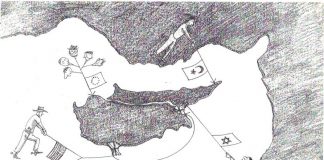EU
Détruire l’UE, aller à la guerre au Moyen Orient, abolir les...
Par Dimitris Konstantakopoulos (*)
On raconte que Madame Le Pen n’a pas beaucoup de chances d’être elue. Mais il faut raconter exactemenet ça, si on...
The Hijacking of France (from Donald Trump to Marine Le Pen)
By Dimitris Konstantakopoulos (*)
“I am the last President of France. All the next presidents will be accountants,” François Mitterrand once said.
But he would not...
Senior British Politicians threaten war with Spain
Former UK Conservative Party leader Howard threatens war with Spain over Gibraltar
By Julie Hyland
Two senior British politicians have threatened that the Conservative government...
Poverty in Greece Gone Up 40% Since 2008
By Phillip Chrysopoulos
The poverty in Greece increased by 40% from 2008 to 2015, according to a Cologne Institute of Economic Research study on European...
Why Euro-sceptics do not offer a solution (and why Greece did...
Dimitris Konstantakopoulos
Excerpt from an interview to Katehon.org
Greece is in a terrible situation. In a way it is worse than a military occupation, because with...
La crise grecque : Première « bataille » d’une « guerre...
Par Dimitris Konstantakopoulos
Athènes, 20 Mars 2010
konstantakopoulosd@yahoo.gr
konstantakopoulos.blogspot.com
sur Utopie Critique
« Nous ne mourrons pas pour Dantzig », disaient les Français il y a soixante-dix...
Britain in Cyprus
By William Mallinson, ex-British Diplomat, Professor of Political Ideas and Institutions at Universita Guglielmo Marconi
As the latest neurotic and frenetic round of negotiations about...
Ten Proposals to Beat the European Union
This collective text initiated by Eric Toussaint, of the CADTM campaign for the abolition of the debt of the global South has been collectively...
Brexit: Divorce by mutual consent or fight?
by Giullietto Chieza
According to Tomas Prouza - state secretary for EU Affairs in Prague - “There is a real danger that British politics, with...
Grenoble’s Response
Declaration of the second pan-European meeting of TTIP-free zones
60 years after its creation, the European Union is now at a crossroads. The different crises...









